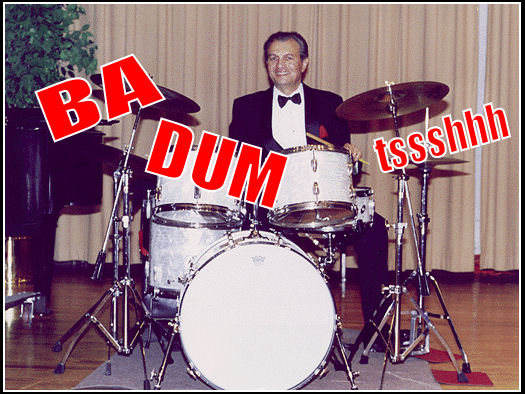JPINFV
Gadfly
- 12,681
- 197
- 63
No need, just send them to DC or Detroit.

On another note, don't GIS "rimshot." It's not pretty.
Follow along with the video below to see how to install our site as a web app on your home screen.
Note: This feature may not be available in some browsers.
No need, just send them to DC or Detroit.

Past Physician Declarations of Necessities, what does the -average- EMT know about Medicade and Medicare?
Third, how is training someone to be a physician, then limiting what they can do with that knowledge to the level of an EMT supposed to be educational. "Yes, all of those things about reactive oxygen species and the like we taught you in biochem? Yea, ignore that, give a NRB to everyone since that's the standard you're going to be held to as an EMT. Yea, we just taught you about decompressing chests for tension pneumos, but you can't do that either because you can't operate as a physician while on the ambulance." How is that educational again
Are EMTs licensed or certified?
However, does it matter? Does a bank teller need to know the ins and outs of check fraud before being hired as a bank teller?I know a lot about how much Medicare/Medicaid abuse goes on, and I thought that's what the poster was referring to.
He is right; Medics can needle decompress a chest: how many medics out there have done it, or seen it done? How many basics could diagnose it if they had one
Somebody with a 100 hour course is more capable than a Physician?
Well then by all means, let us get rid of all the PRIME and BASICS Doctors and start putting EMTs on the helicopter .... seeing as how they are more capable than the helicopter Doctors
Can some 100 hour course person differentiate between appendicitis and a missed septic abortion? Can some person with a 100 hour course differentiate between when it is appropriate and not appropriate to give somebody oxygen or leave them at home? No.
So... they will learn absolutely nothing at all doing 2 years of ambulance rides? Is that what you're stating?
How often are they on the ambulance during those 2 years? It's not going to be 3 24s a week plus medical school.So... they will learn absolutely nothing at all doing 2 years of ambulance rides? Is that what you're stating?
It depends on the school. 3rd and 4th year are when we are in the hospital full time, however some schools have limited clinical experiences during 1st and 2nd year and essentially all schools run volunteer health fairs (health screenings, youth sports physicals, etc), have options to volunteer in free or low cost primary care clinics, or do shadowing (which, when it comes to medical students shadowing, is very similar to rotations, just without the continuity).Do you only get clinical placements during year 3 and 4?
It depends on the school. 3rd and 4th year are when we are in the hospital full time, however some schools have limited clinical experiences during 1st and 2nd year and essentially all schools run volunteer health fairs (health screenings, youth sports physicals, etc), have options to volunteer in free or low cost primary care clinics, or do shadowing (which, when it comes to medical students shadowing, is very similar to rotations, just without the continuity).
Wow, this is so different! We get clinical experience in all five years of the MBChB and its not "shadowing" or "volunteer" we are actually expected to apply our knowledge and you know, small steps but it is structured formal clinical exposure and practical based learning to complement the problem based learning done in class.
